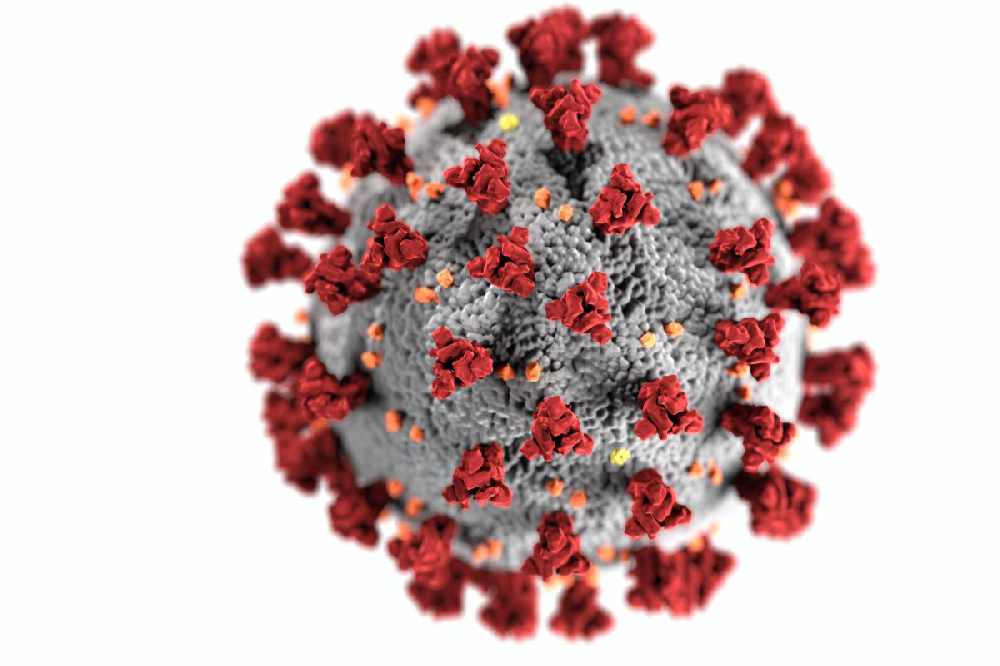
National news updates on Friday 30th April.
Local figures:
The Health Protection Surveillance Centre has today been notified of 4 additional deaths related to COVID-19.
There has been a total of 4,903 COVID-19 related deaths in Ireland.
As of midnight, Thursday 29th April, the HPSC has been notified of 545 confirmed cases of COVID-19. There is now a total of 248,870* confirmed cases of COVID-19 in Ireland.
Of the cases notified today:
• 294 are men / 244 are women
• 77% are under 45 years of age
• The median age is 29 years old
• 264 in Dublin, 58 in Kildare, 50 in Cork, 29 in Donegal, 28 in Galway and the remaining 116 cases are spread across 21 other counties**.
As of 8am today, 139 COVID-19 patients are hospitalised, of which 44 are in ICU. 8 additional hospitalisations in the past 24 hours.
As of April 28th 2021, 1,487,043 doses of COVID-19 vaccine have been administered in Ireland:
• 1,067,378 people have received their first dose
• 419,665 people have received their second dose
Dr Tony Holohan, Chief Medical Officer, the Department of Health said: “The easing of restrictions is a welcome and deserved turning point in our collective efforts to get through this pandemic. It is a step closer towards the shared national goal of suppressing COVID-19 and protecting the vulnerable.
“However, incidence around the country varies. Some areas are in a more precarious position than others. For example, while the national incidence rate is 125 per 100,000, Donegal currently stands at 295 per 100,000. This is extremely concerning for public health doctors locally.
“We are calling on community leaders in areas such as Donegal, where the virus is still circulating at dangerous levels, to encourage the people there to stick with the public health measures, especially if they are vulnerable or have yet to be vaccinated.
“January was a difficult time for us as a country, but particularly tough for those in Donegal. It is important that we look forward now and work together to reduce incidence nationally, but also in our own locality. Your individual actions for the good of your neighbours and community do matter, and they will make all the difference.”
Dr Ronan Glynn, Deputy Chief Medical Officer, the Department of Health said: “We have achieved a huge amount as a country, but this virus still poses a threat and it is important to stay vigilant and not to drop your guard over the coming weeks. This is especially true for those who have yet to be vaccinated or are particularly vulnerable.
“The important thing to do as society reopens is to continue to risk assess your choices and your environment. Just because something is an option, doesn’t always mean it’s safe. Crowded places and enclosed spaces still carry a risk. If you don’t feel comfortable, or feel a place is too crowded, leave. Encourage your friends and loved ones to continue to follow the basic measures to protect themselves and their families.”
Professor Philip Nolan, Chair of the NPHET Irish Epidemiological Modelling Advisory Group: “Business owners, employees and customers have received welcome and much-awaited positive news regarding the restarting of our economy. However, it is extremely important that everyone take this time in anticipation of reopening to review their safety practices and protocols. This is for the benefit of us all, but critically for those who they employ.
“Remember that you have a duty of care to those that work for you, and your patrons and clients. Reopening comes with it the responsibility to mitigate the risk of COVID-19 spreading in your establishment.
“We are all looking forward to seeing one another again for a browse, a coffee, or a meal. But we must do so safely, and in new ways, to ensure this virus is kept at bay for the coming months as vaccination levels continue to increase.”
Professor Pete Lunn, Head of the Behavioural Research Unit, ESRI: “Today’s results from the latest research on people’s behaviour, undertaken independently by the institute’s Behavioural Research Unit show that while the large majority of the population continue to follow the public health guidelines in most aspects of their lives, there has nevertheless been a clear fall-off in the levels of compliance reported in recent weeks.
“However, the average number of people that each individual met from another household, the number of social visits to homes, and the likelihood that people had close contacts, all of which had been increasing during February and March, did not increase further over the Easter period.
“Data also show that despite news stories surrounding a very low risk of blood clots associated with some vaccines, people’s intention to take the vaccine remains very high. Over 80% say they will take the vaccine when offered it, with most of the remainder saying they are still unsure.”
The COVID-19 Dashboard provides up-to-date information on the key indicators of COVID-19 in the community including daily data on Ireland’s COVID-19 Vaccination Programme.
*Validation of data at the HPSC has resulted in the denotification of 1 confirmed case. The figure of 248,870 confirmed cases reflects this.
**County data should be considered provisional as the national Computerised Infectious Disease Reporting System (CIDR) is a dynamic system and case details are continually being validated and updated.
Today’s cases, 5-day moving average of new cases, 14-day incidence rate per 100,000 population and new cases in last 14 days (as of midnight 29th April 2021) (incidence rate based on Census 2016 county population)
|
County |
Today's cases (to midnight 29Apr2021) |
5 day moving average (to midnight 29Apr2021) |
14-day incidence rate per 100,000 population (16Apr2021 to 29Apr2021) |
New Cases during last 14 days (16Apr2021 to 29Apr2021) |
|
Ireland |
545 |
450 |
127.3 |
6060 |
|
Donegal |
29 |
40 |
293.4 |
467 |
|
Kildare |
58 |
43 |
238.6 |
531 |
|
Westmeath |
12 |
16 |
190.4 |
169 |
|
Dublin |
264 |
175 |
184.4 |
2,484 |
|
Offaly |
<5 |
8 |
171.9 |
134 |
|
Longford |
<5 |
3 |
168.8 |
69 |
|
Tipperary |
6 |
16 |
151.7 |
242 |
|
Meath |
<5 |
21 |
144.1 |
281 |
|
Leitrim |
<5 |
2 |
134.2 |
43 |
|
Limerick |
19 |
17 |
123.7 |
241 |
|
Louth |
13 |
9 |
109.4 |
141 |
|
Cavan |
<5 |
5 |
95.8 |
73 |
|
Galway |
28 |
21 |
88.7 |
229 |
|
Wicklow |
11 |
10 |
87.8 |
125 |
|
Carlow |
<5 |
4 |
84.3 |
48 |
|
Monaghan |
5 |
6 |
79.8 |
49 |
|
Mayo |
7 |
5 |
72 |
94 |
|
Laois |
<5 |
2 |
70.8 |
60 |
|
Roscommon |
<5 |
3 |
68.2 |
44 |
|
Waterford |
12 |
8 |
63.7 |
74 |
|
Sligo |
<5 |
2 |
56.5 |
37 |
|
Cork |
50 |
27 |
53.4 |
290 |
|
Clare |
2 |
3 |
37 |
44 |
|
Wexford |
<5 |
2 |
26.7 |
40 |
|
Kilkenny |
<5 |
1 |
24.2 |
24 |
|
Kerry |
<5 |
1 |
18.3 |
27 |
~The 5-day moving average of the number of new cases provides an appropriate indicator of current daily case numbers within a county. It takes account of any validation of cases for previous days and smooths out daily/weekend fluctuations in case numbers.
- the 7-day incidence rate is 65.8
- 5 Day Moving average 450
Northern Ireland:
The hospitality sector is reopening in Northern Ireland today, as part of a widespread easing of restrictions.
Cafes, restaurants and pubs will open their doors to customers, for outdoor services.
All shops are also allowed reopen, along with gyms, swimming pools and self-catering accommodation.
Cavan-Monaghan TD Matt Carthy is asking people from the Republic not to head North for these activities:
Construction:
Up to 80,000 construction workers will return to work next month, according to the Housing Minister.
The entire sector will reopen on May 4th, after childcare and residential projects resumed on April 12th.
Minister Darragh O'Brien says it's a welcome boost for thousands of people:
Communions and Confirmations:
The Archbishop of Dublin will issue guidance on deferring confirmations and communions in the coming days.
The government says they won't be allowed until at least July - even though public Masses can resume on May 10th.
The cap on funerals and weddings will also increase to 50 that day.
Archbishop Dermot Farrell says communions and confirmations won't be held for a while yet:
Trialing large gatherings:
A pilot programme is set to examine the return of large sporting events, gigs and festivals over the summer.
The government is preparing to host trial events to see how they can be safely managed before everyone is vaccinated.
The new plan for easing restrictions also suggests nightclubs could return towards the end of the year.
Culture Minister Catherine Martin says they will be trialing the return of large events soon:
Internation


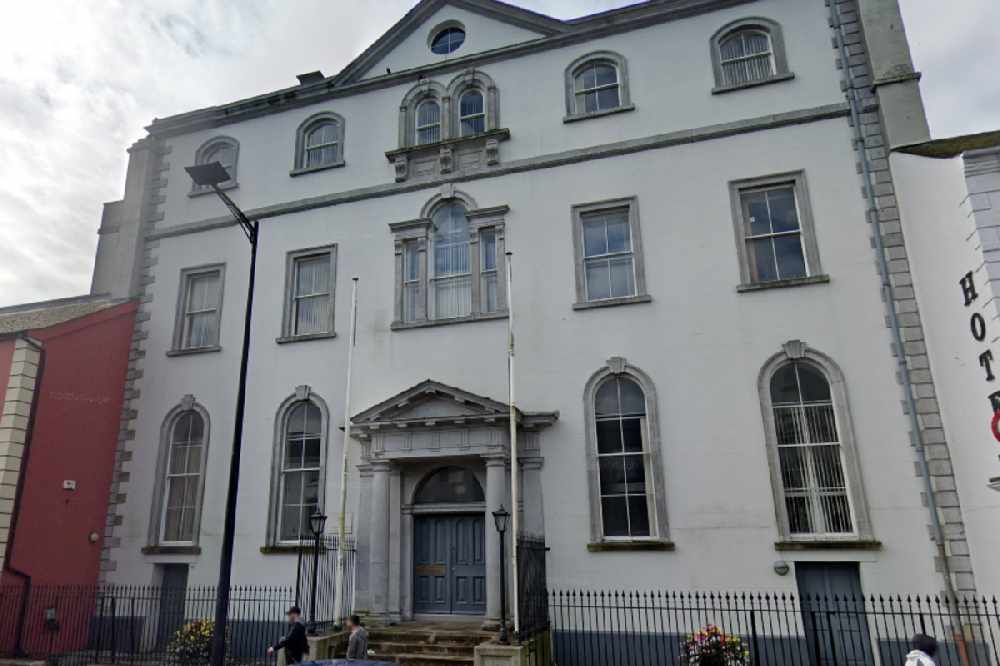 Teenager Charged Over Discharge Of Firearm in Westmeath
Teenager Charged Over Discharge Of Firearm in Westmeath
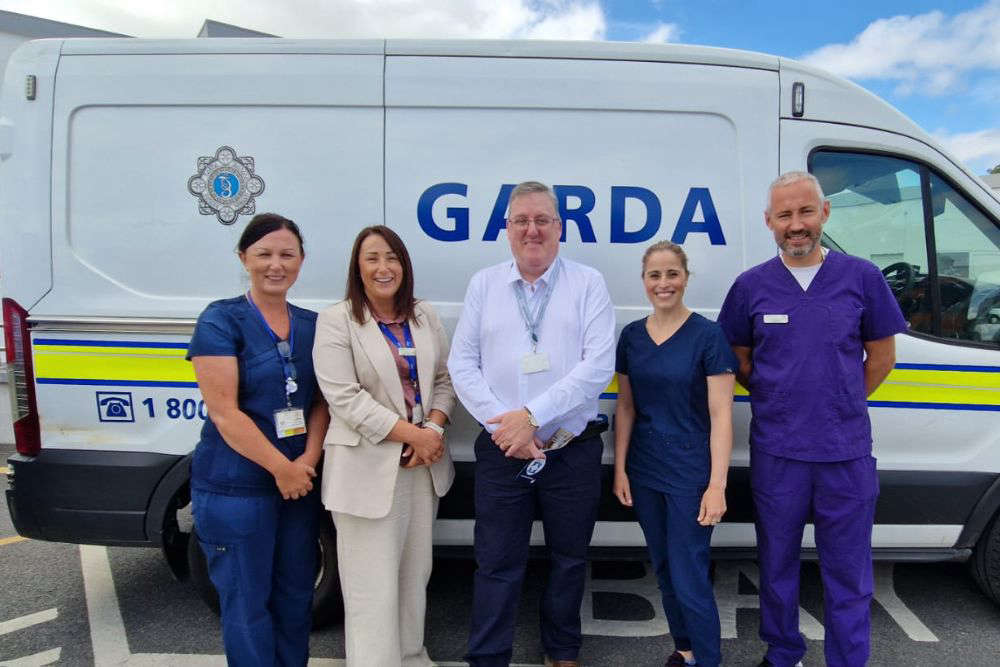 'Hospital Watch' Launches in Laois Hospital
'Hospital Watch' Launches in Laois Hospital
 Grandad Set To Mark 90th Birthday With Charity Skydive
Grandad Set To Mark 90th Birthday With Charity Skydive
 Medication Should Be Prescribed For Minor Illnesses - Irish Pharmacy Union
Medication Should Be Prescribed For Minor Illnesses - Irish Pharmacy Union
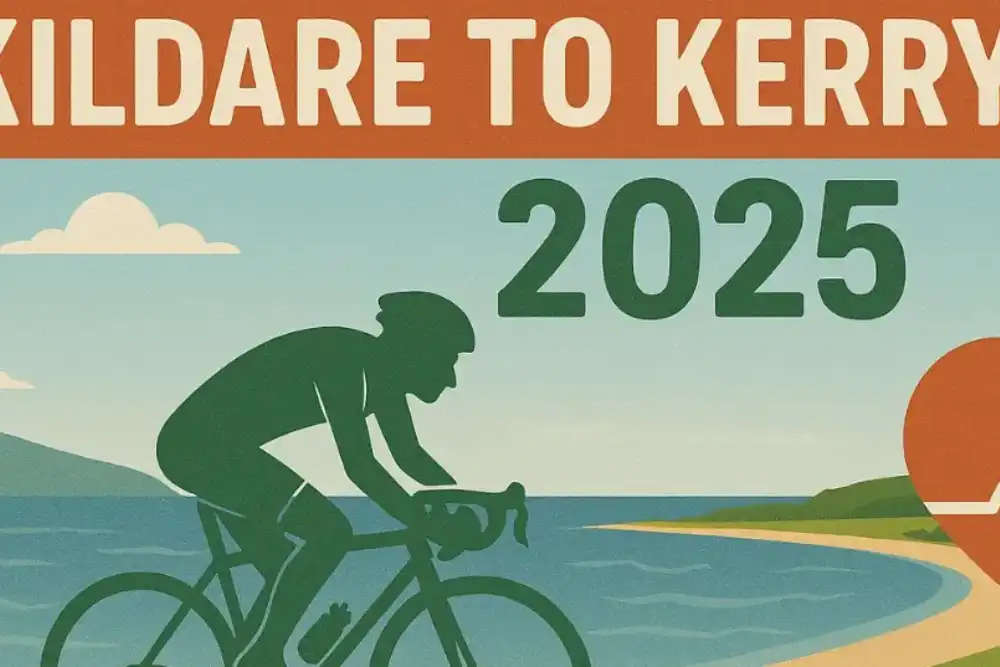 Midlands Heart Attack Survivor Cycling To Raise Funds For Cardiac Care
Midlands Heart Attack Survivor Cycling To Raise Funds For Cardiac Care
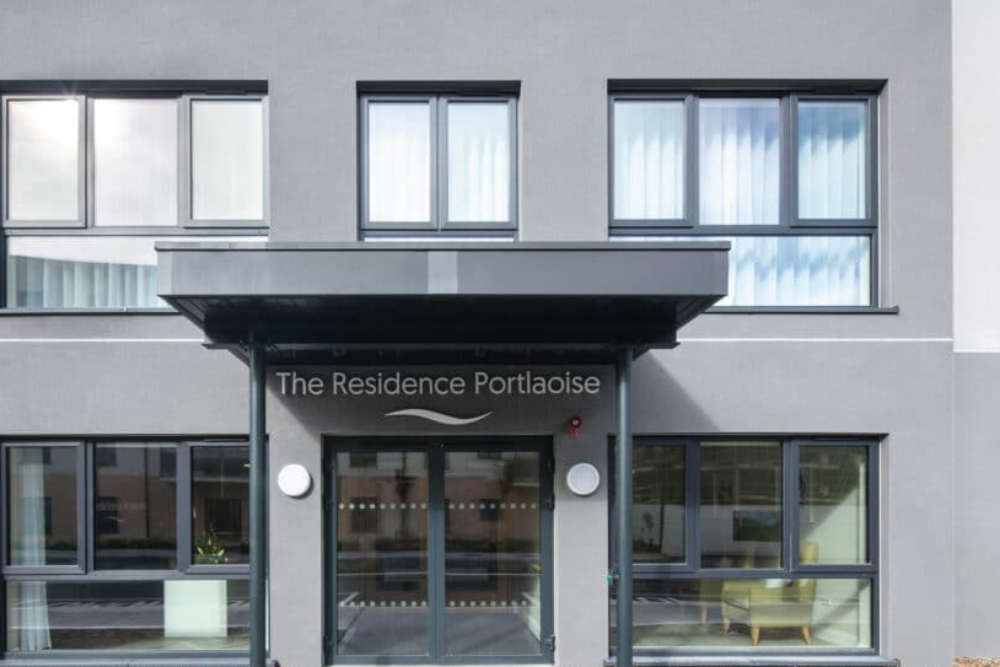 More Frequent Inspections Needed For Laois Nursing Homes - Brian Stanley
More Frequent Inspections Needed For Laois Nursing Homes - Brian Stanley
 Man Jailed For Two Years For Defilement Of Employer's Teen Daughter
Man Jailed For Two Years For Defilement Of Employer's Teen Daughter
 Man Who Raped Pregnant Partner Receives Seven Year Sentence
Man Who Raped Pregnant Partner Receives Seven Year Sentence
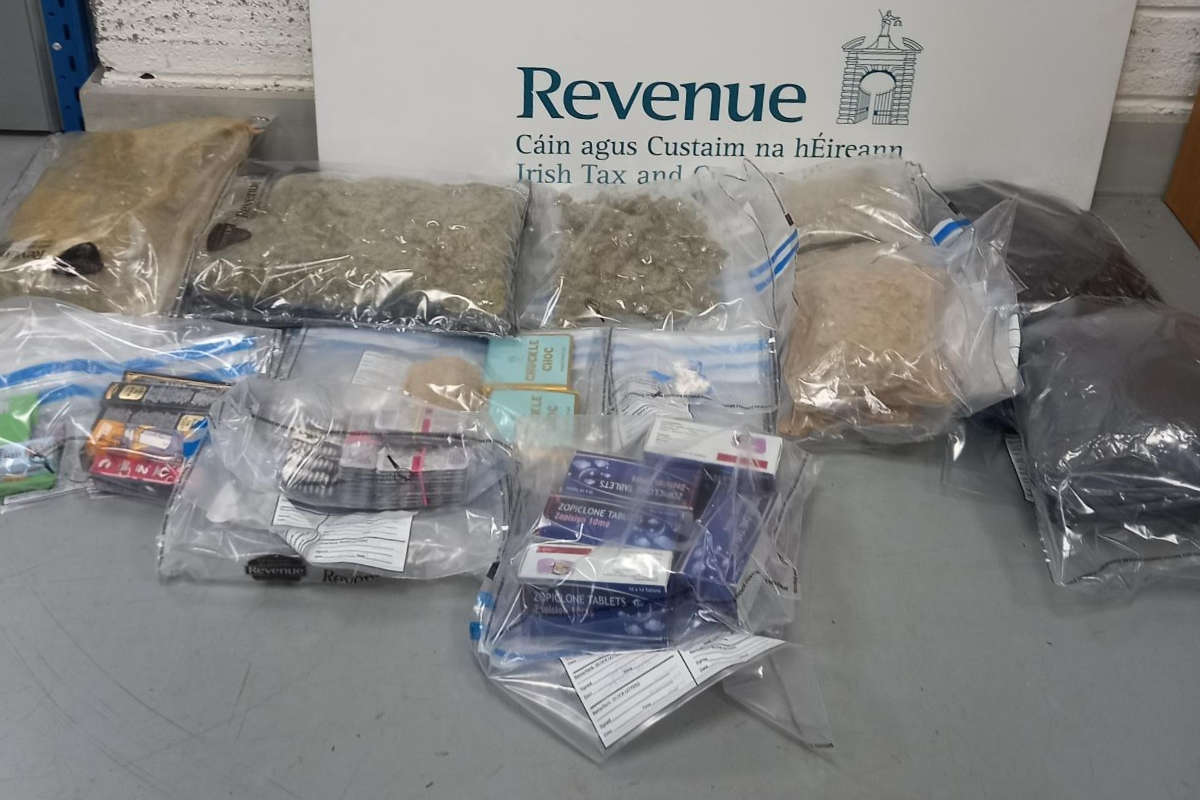 Revenue Seize Over €400k Of Contraband In Midlands, Dublin and Rosslare
Revenue Seize Over €400k Of Contraband In Midlands, Dublin and Rosslare
 Westmeath Historian Debunks Rain Weather Forecast Myth
Westmeath Historian Debunks Rain Weather Forecast Myth
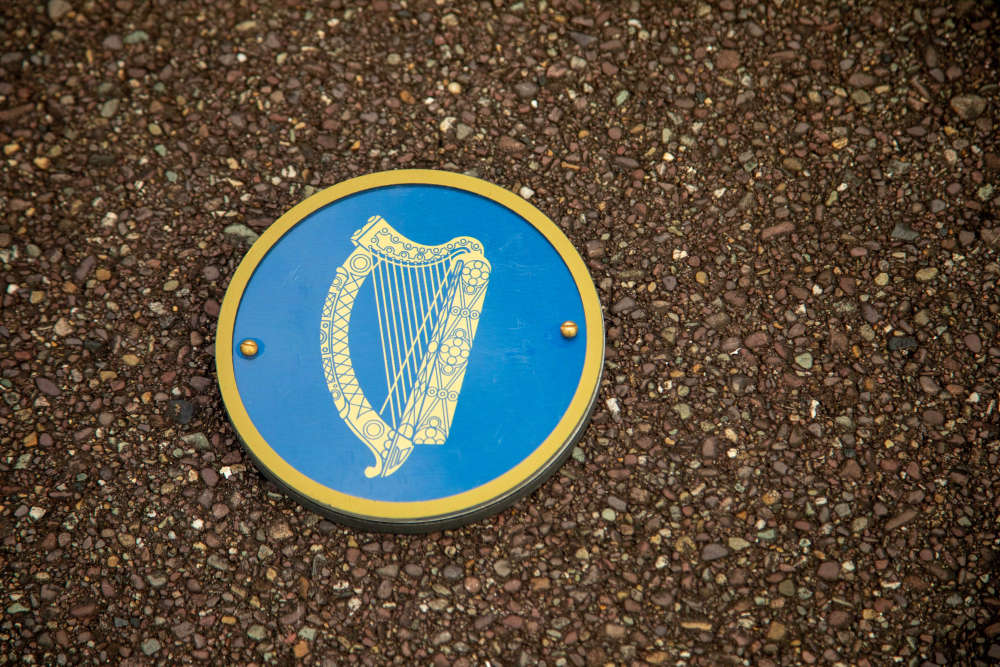 Irish Troops Have Paid 'Huge Price' On UNIFIL Mission - Midlands Defence Expert
Irish Troops Have Paid 'Huge Price' On UNIFIL Mission - Midlands Defence Expert
 Wednesday Actress Opens Up On Filming With Tim Burton In Offaly
Wednesday Actress Opens Up On Filming With Tim Burton In Offaly
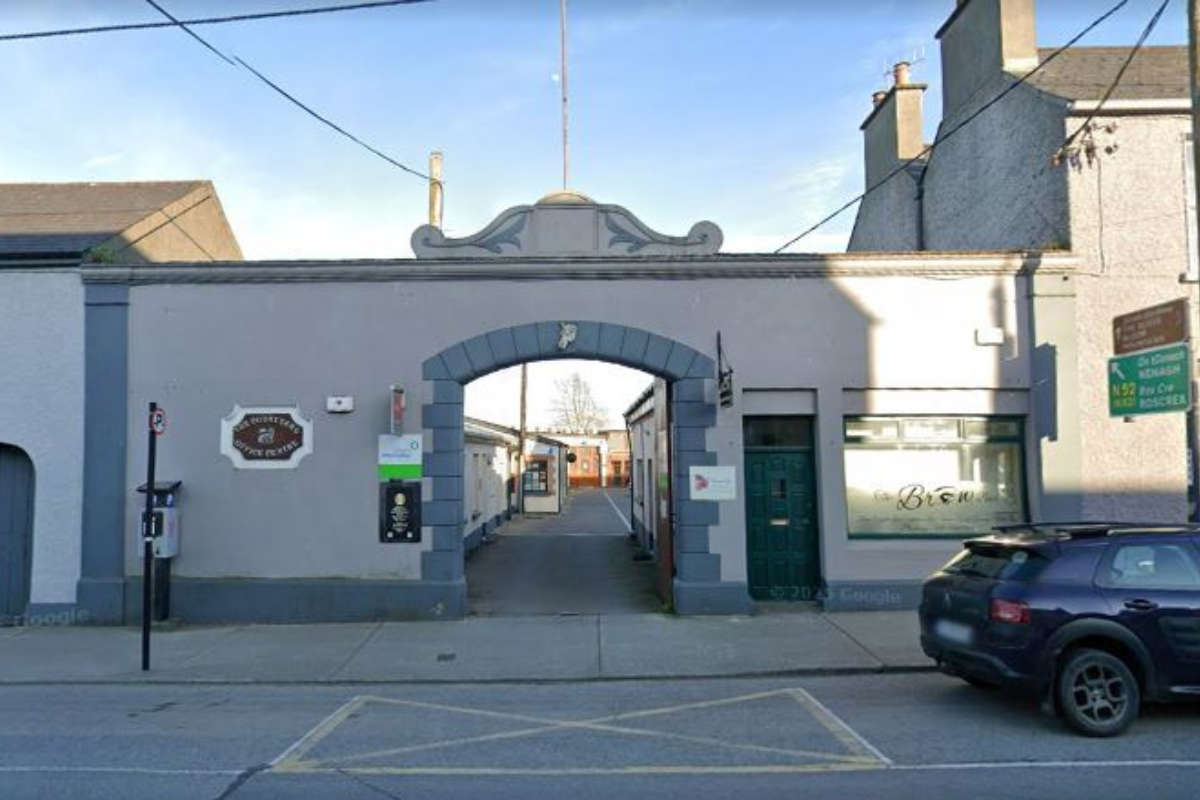 Fire Forces Temporary Closure Of Offaly Citizens Information Centre
Fire Forces Temporary Closure Of Offaly Citizens Information Centre
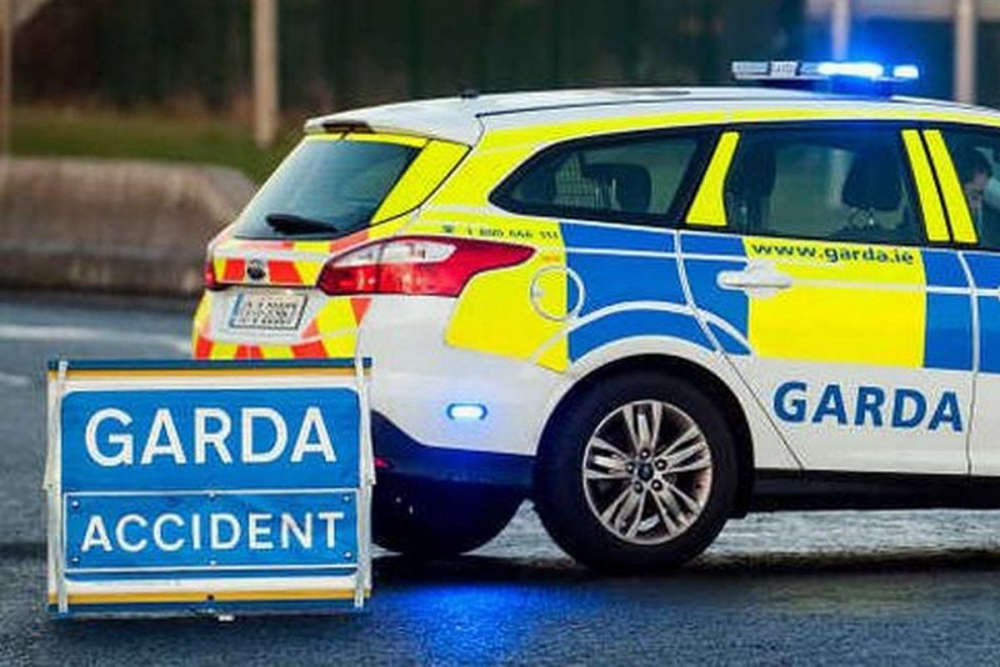 Emergency Services Clear Westmeath Crash Scene
Emergency Services Clear Westmeath Crash Scene
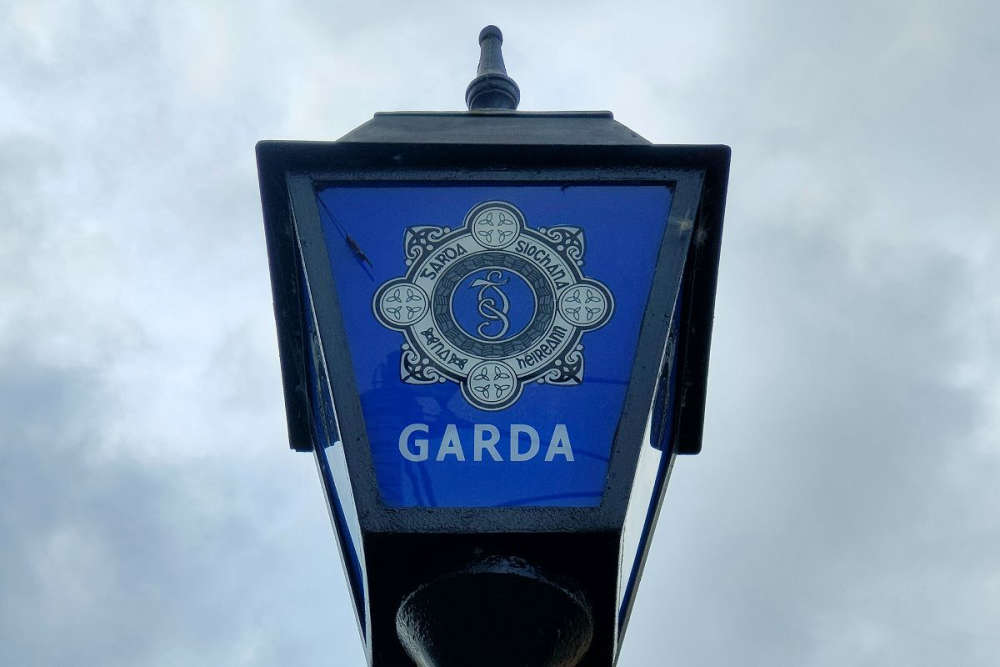 Two Teens Arrested In Westmeath For Shooting In Residential Area
Two Teens Arrested In Westmeath For Shooting In Residential Area
 Star With Midlands Roots Tipped To Be Nominated For Emmys
Star With Midlands Roots Tipped To Be Nominated For Emmys
 Laois CEO Behind Hoax Film Exposing Irish Stereotypes
Laois CEO Behind Hoax Film Exposing Irish Stereotypes
 Westmeath Councillor Urges Take-Aways To Provide Bins
Westmeath Councillor Urges Take-Aways To Provide Bins
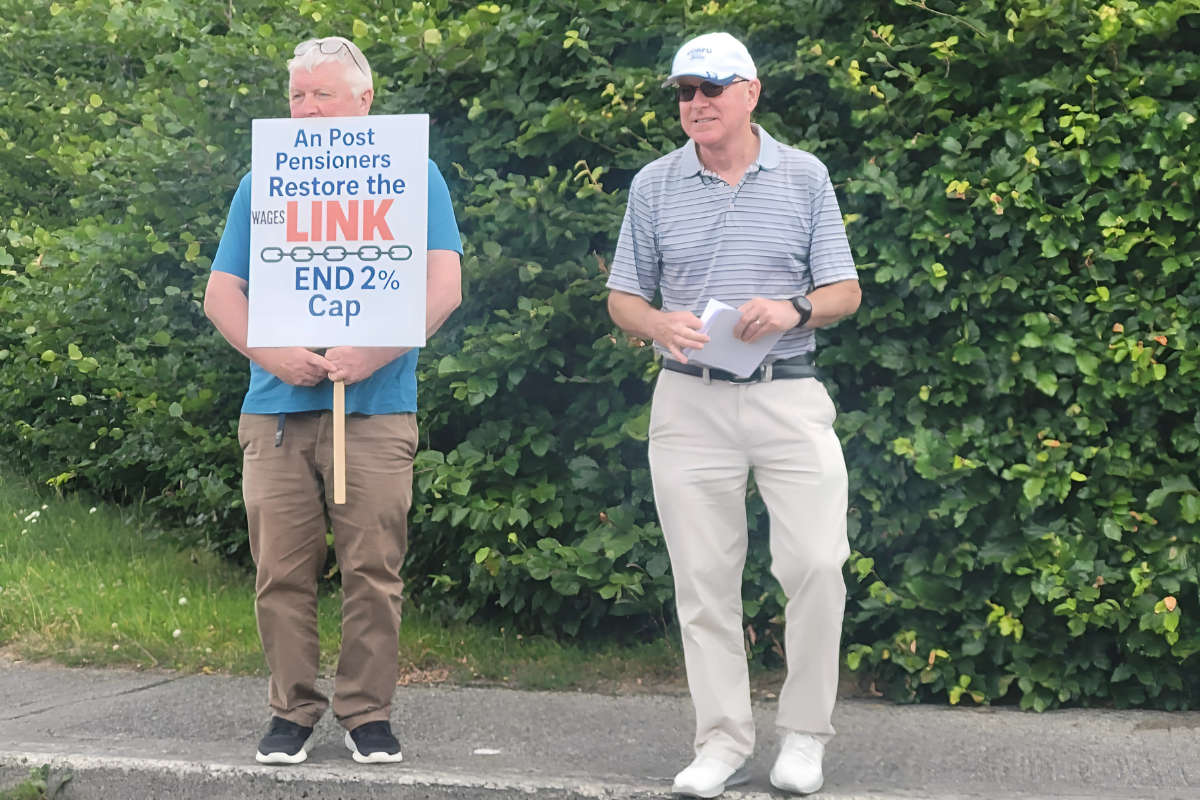 Retired Post Officers To Protest In Laois
Retired Post Officers To Protest In Laois
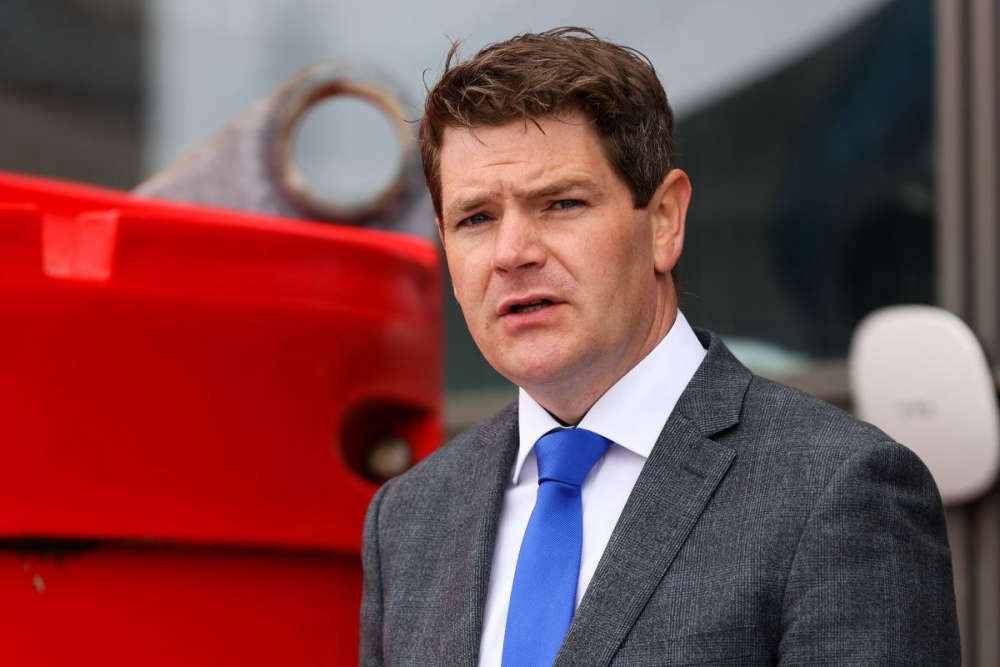 Enterprise Minister Rules Out One-Off Relief Fund As US Tariff Threats Loom
Enterprise Minister Rules Out One-Off Relief Fund As US Tariff Threats Loom